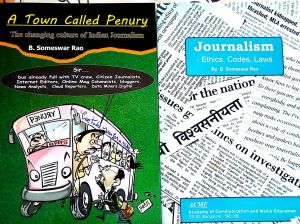Health and parents become important only when we lose them. At normal times we take them for granted and often do not bother about them. Many, unknowingly, do things that cause permanent damage to health and lose it. Some like smokers and alcoholics do that despite warnings and advice. Similarly, most people love and care for parents but do not show it till it is too late. Quite a few think of them as a hindrance in their plans and a burden they hope to be rid of soon.
And when they are lost, people want them back. With some effort, expense and loss of time, health can be, to some extent, restored. Parents cannot be.
How one connects to one’s father and mother determines one’s whole attitude to life and what one makes of it – a heaven or a hell, a life full of love, fulfillment, achievement, positive attitude and happiness or one of negative thinking, hatred, frustration, suffering and failure. It also determines one’s relationship with one’s own offspring. Strangely, those who resented their parents’ behaviour are also most likely to behave similarly with their own children. They unconsciously punish themselves for not loving their parents by losing the love of their children.
A colleague, who lost his father recently paid touching tributes to him in print. Not many get an opportunity to publish what they think of their fathers. In some cases not all their thoughts may be printable. And some eulogies may be a mere ritual without reflecting the real feelings.
What one thinks of one’s father varies with one’s age. The child who says “My Daddy strongest” may grow into a man who unconsciously wonders “When will the old man go?” These thoughts may also vary from generation to generation and from one culture to another. But some thoughts are eternal.
It was nearly three decades ago that I knew Harbans Lal Bajaj who had a unique private visiting card with a picture of himself and his father Choudhary Raj Kishan Bajaj on one side. The father’s ‘Choudhary’ prefix and turban would make one think of them as Haryanvis of a very distant past, but it was not so. H.L. Bajaj, then executive director of National Thermal Power Corporation, moved on to occupy bigger positions likeTechnical Member in the Appellate Tribunal for Electricity and Chairman, Central Electricity Authority. His official visiting card showed him to be a highly qualified electrical engineer associated with the top professional bodies. My recent online efforts to re-establish contact with him through NTPC, to discuss a unique plan he had for communicating with his workers, failed. (Hope some reader who knows him can put us in touch again.) I now feel HLB would not have been such a great achiever if he did not have a very good rapport with his father.
Reproduced here is the text, in small print, on the other side. Whatever the changing attitude towards one’s father may be, what H. L. Bajaj listed on the card appears universal.
4 years : My Daddy can do anything
7 years : My Dad knows a lot, a whole lot
8 years : My Father doesn’t quite know everything
12 years : Oh, naturally Father does not know that either
14 years : Father? Hopelessly old-fashioned
21 years : Oh, that man is out of date. What did you expect?
25 years : He knows a little about it, but not much
30 years : May be, we ought to find out what Dad thinks
35 years : A little patience. Let’s get Dad’s assessment before we do anything
50 years : I wonder what Dad would have thought about that. He was pretty smart
60 years : Dad knew absolutely everything
65 years : I’d give anything for Dad to be here so I could talk this over with him. I really miss that man.
Just recollect when you last sat down with your father and talked, for that is what he desperately wants – not all the wealth, comforts or gifts you give him.
All you need is to say “Hi Dad, can we talk?”
Say it today.
Tomorrow, it may be too late.
